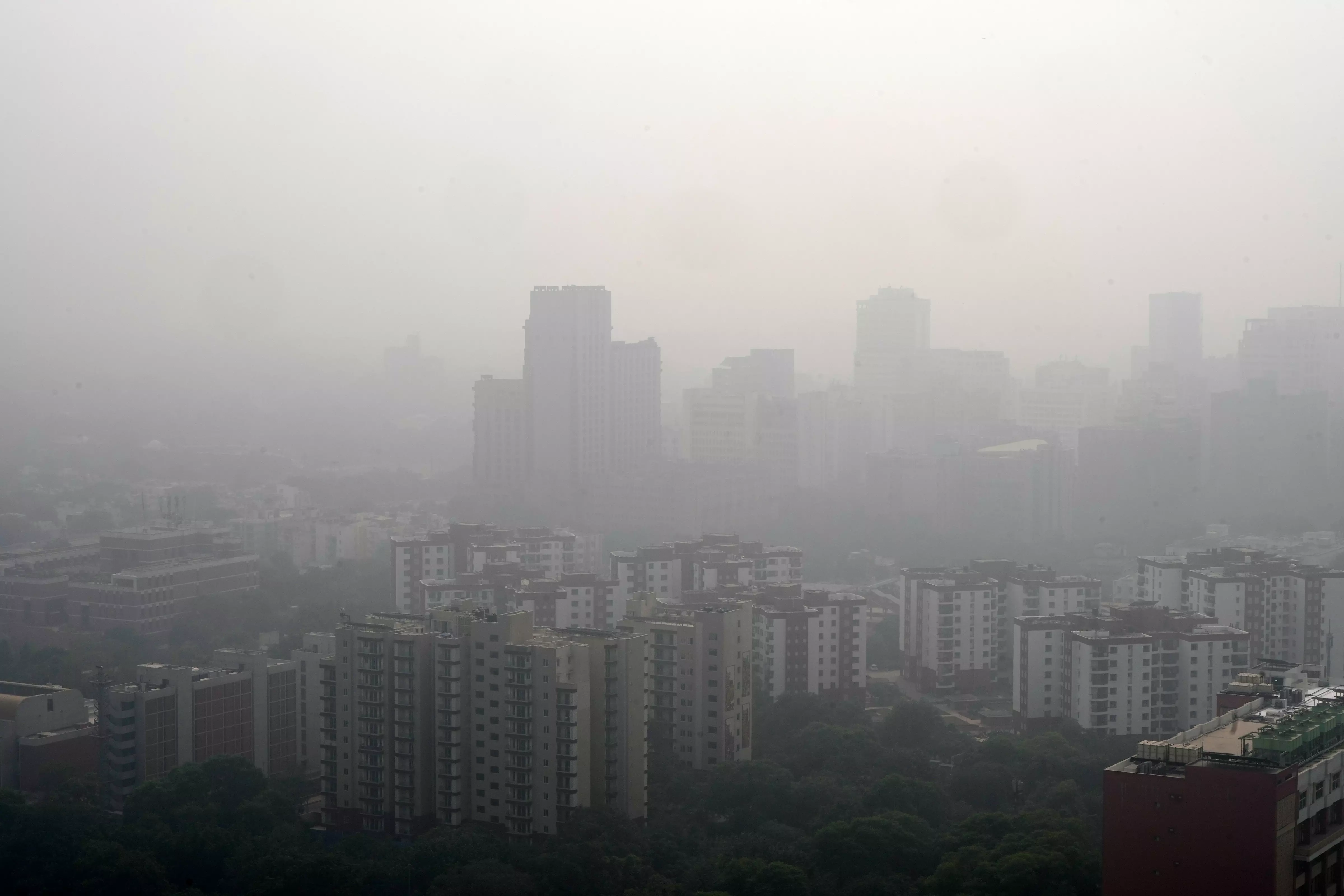
Poisonous haze envelops Delhi, air quality turns 'severe' again

New Delhi, Nov 15 (PTI) The poisonous haze blanketing Delhi thickened on Wednesday with the air quality turning severe again amid stable atmospheric conditions.
The national capital's 24-hour average Air Quality Index (AQI), recorded at 4 pm every day, stood at 401. It was 397 on Tuesday. It was 358 on Monday and 218 on Sunday, 220 on Saturday, 279 on Friday and 437 on Thursday.
Neighbouring Ghaziabad (378), Gurugram (297), Greater Noida (338), Noida (360) and Faridabad (390) also recorded very poor air quality.
An AQI between zero and 50 is considered 'good', 51 and 100 'satisfactory', 101 and 200 'moderate', 201 and 300 'poor', 301 and 400 'very poor', 401 and 450 'severe' and above 450 'severe plus'.
Delhi's air quality dropped over the last few days despite the state government implementing stringent measures, including a ban on construction work and the entry of diesel-guzzling trucks into the city, to control pollution. According to IQAir, a Swiss company that specialises in air quality monitoring, Delhi was the most polluted city in the world on Tuesday, followed by Lahore and Mumbai.
A system developed by the Pune-based Indian Institute of Tropical Meteorology to identify the contribution of different pollution sources showed stubble-burning accounted for 23 per cent of the air pollution in the capital on Wednesday. It is likely to be 11 per cent on Thursday and 4 per cent on Friday.
The data also showed that transport -- another major cause of pollution in the city -- contributed 12 to 15 per cent to Delhi's foul air over the past few days.
An official of the Commission for Air Quality Management (CAQM) had Tuesday said stringent measures, including a ban on construction work and the entry of polluting trucks in the national capital, under the final stage of the central government's air pollution control plan called the Graded Response Action Plan (GRAP) will continue until further orders.
Earlier this week, Delhi Environment Minister Gopal Rai had said the city government may implement the odd-even car rationing scheme if the AQI crosses the 400 mark.
The government last week postponed the implementation of the scheme, which permits cars to operate on alternate days based on the odd or even last digit of their registration numbers, after a notable improvement in the city's air quality due to rain on Friday.
Doctors say breathing in the polluted air of Delhi is equivalent to the harmful effects of smoking approximately 10 cigarettes a day.
Prolonged exposure to high levels of pollution can cause or exacerbate respiratory problems such as asthma, bronchitis and chronic obstructive pulmonary disease (COPD) and dramatically raise the risk of cardiovascular disease, they said.
Unfavourable meteorological conditions, combined with vehicular emissions, paddy-straw burning, firecrackers and other local pollution sources, contribute to hazardous air quality levels in Delhi-NCR during winters.
According to a Delhi Pollution Control Committee (DPCC) analysis, the city experiences peak pollution from November 1 to 15, when the number of stubble-burning incidents in Punjab and Haryana increases.
On Wednesday, 2,544 fresh stubble burning incidents were reported in Punjab, taking the total number of such fires to 30,661 since September 15. Delhi's air quality ranks among the worst in the world's capital cities.
According to a report compiled by the Energy Policy Institute at the University of Chicago (EPIC) in August, air pollution is shortening lives by almost 12 years in Delhi. PTI GVS ZMN ZMN

